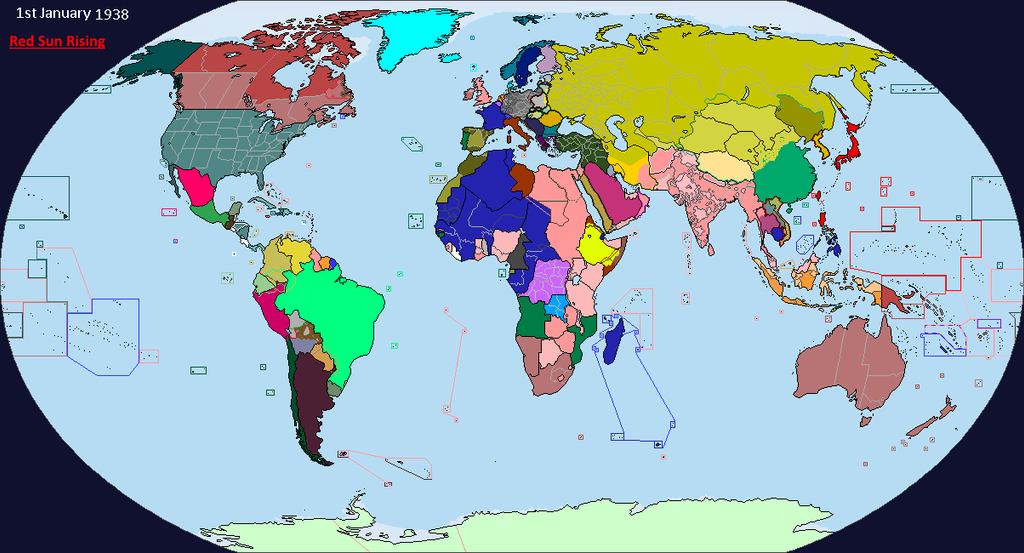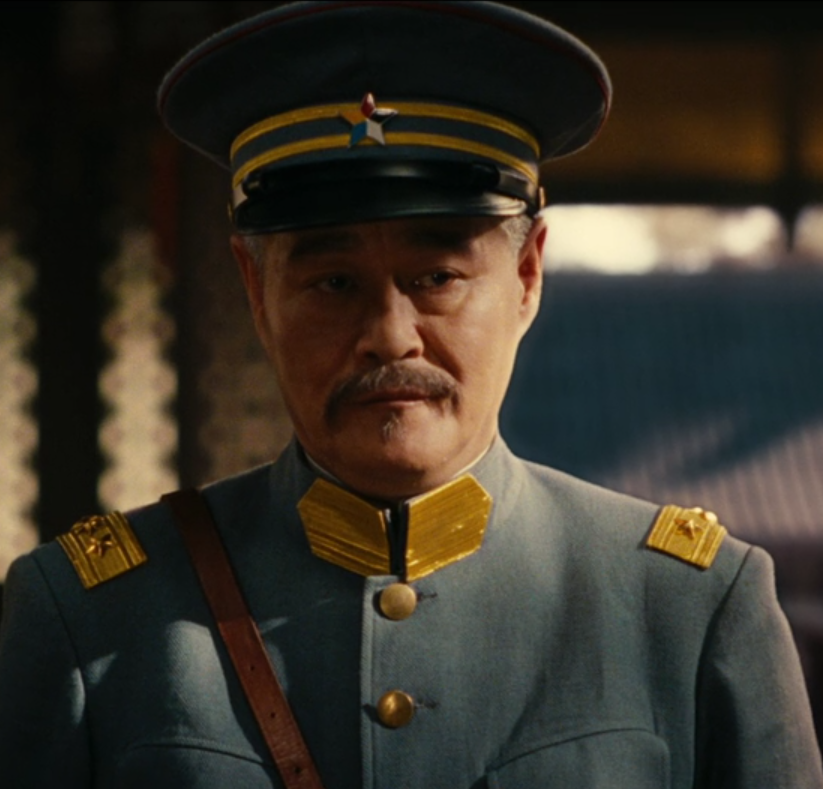The situation at the start of 1938

As the international situation deteriorated, the world had been nearing war for years before the French invasion of the Philippines. But with this invasion and the soon declaration of war from the Mitteleuropa pact, Germany found itself once again at war with France, though this France was far more hostile and fanatical than the one it had faced. For the first time since Napoleon, France was in a militaristic state, and this time it had an ally in the form of Wrangel's National Salvation Russia, with the Ottomans waiting at the sides for the right moment to strike the unstable situation of the Balkans. While it would be a year or so before the South American theatre of the war began, the end of 1937 was the start of the most deadly theatres in Europe and Africa, as the Entente and Alliance once again came for each other.
In the meantime, Britain increasingly distanced itself from its now fascist allies, retreating toward "splendid isolationism" alongside the United States, while privately reconciling its differences with the German Empire, who dominated continental Europe, albeit with difficulty. The humiliation of the Fourth Balkan War was still fresh in German minds, and the rise of Russia in the east caused uncertainty among the ranks of its satellite nations. It had certainly been rumoured that Hungarian nationalists wished to betray Germany to the Russians once the time was right. With Russian funding, there is definitely substantial evidence that they had wished to betray their German overlords. With the Germany declaring war on France on the 22nd of October 1937, the Russians began to mobilise as Germany faced a dramatically reinforced Maginot Line. The Russians soon declared war themselves on the Germans on Halloween. The Germans, while hoping to quickly acquire victory as Schlieffen had tried in the First World War, once again found themselves disappointing in their military plans, as Russian forces advanced across the border into their satellite states in Poland, Ruthenia and Lithuania. At the same time, the Turkish mobilised their forces, not formally entering the European conflict, but preparing their own against the nation of Mesopotamia, centred around Baghdad, and consisting mainly of Shia Muslims. Independent, but under British protection, this nation remained vulnerable to the ambitions of Turkomen's fascist regime.
As well as these main catalysts for the Second Great War, a number of other profound occurances took place in this time period in the five years leading up to the War.
- The Portuguese military government is deposed in a military coup in February 1935, almost leading to a civil war, though the old regime is quickly disposed of, leading to a transition towards democracy.
- The assassination of Republican presidential candidate Herbert Peters in December 1936 while attending a local counsel meeting in his home town of Colarado Springs is linked with his grandparents being of allegedly Jewish descent.
- Mexico, now partitioned as of August 1937, forever altered the appearance of Central America. 'Father Rodriguez's' Holy State began to expand influence south into Guatemala, as client supporters living in that region also began to stir trouble, hoping to remove American influence from their country, while also remaining fervently religious and anti-communist. The more independent-minded Yucatan regime meanwhile established itself as a more stable power, despite the initial economic issues. US occupation of Baja California was also done on orders of the US miiltary, allegedly to prop up the rump Mexican regime.
- The collapse of the Bolivian regime is almost in full swing, as Paraguay has secured its occupation and is gearing up with its allies of Peru and Colombia to settle other borders against Argentina, Chile and Brazil.
- After a lengthy battle throughout December, the Chinese repel a Russian attack on Beijing, with the seige finishing around the 23rd of December. The Russians go on to focus other campaigns around the western interior.
- Ethiopia goes to war with Italy in the Autumn by holding claims in Somalia and Eritea, hoping to gain a coastline and secure control in the region as a local power. This does not go as well as Addis Ababa hoped, and the Italians are grinding them to a hault by the end of 1937.
/dachau22-56a48a7d5f9b58b7d0d773c1-58f005c55f9b582c4daa5df7.jpg)



